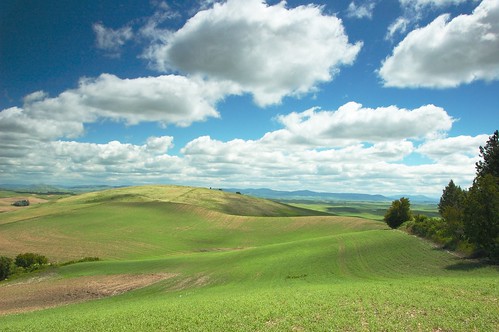Note to all my readers: I'm EXTREMELY sorry I haven't updated in a while. 11th was starting in school and besides battles with teachers, indecision about my subjects, general grumbling, and the odd reading and watching movies, I haven't had time for much else. But I promise I'll be more regular from now on
It's been a long time since I wrote to continue my ten part series on environment conservation. Let me first clarify that no matter how busy I was, the real reason I haven't put up this part for so long is that I was very hesitant. I consider this the one of the most important parts of the series, and I didn't want to mess it up. But now that I've delayed this for so long, I think I'll just do what I've done many times before : trust my instincts. I hope you'll like it.
___________________________________________________
In the words of Andrew Carnegie, "If you want to be happy, set a goal that commands your thoughts, liberates your energy, and inspires your hopes".
I have often observed that environmental conservation becomes a rather sporadic issue. Some specific issue comes up, receives a lot of brouhaha in the media and fizzles out of memory. On the other hand, I've heard of individuals who've made environmental conservation their life's work or as a constant endeavour alongside their regular life.
Take the case of the tigers. The Aircel "Save our tigers" initiative ran strong for a while. It stayed in public memory long enough for the situation to receive plenty of criticism, and the tiger to receive plenty of sympathy. But at the end of the day, many people have moved on with their lives. The fact that there are less than 1,000 tigers in India is now old news. I'm not saying this to start a tirade on the shortness of public memory, but to draw the contrast between regular individuals for whom the issue is short-lived, and the people who fight battles, big or small, for the world.
But aren't they regular people too? Aren't they the same humans who share our world, consume food and water like us and breathe the same air we do? What is it that sets them apart and what is it that makes them continue? We observe their passion, and we may even be a infected by their enthusiasm. But we are unable to work as they do, make contributions like them and, in brief, do what they do. Why?
The real reason lies in the fact that these people have found what resonates with them. They've found a goal that they can pursue without forcing themselves, one that they want to pursue. They've identified what they can and want to do. Here, I'm not speaking only about well known environmentalists, members of wildlife organizations and NGOs and others, but also of every layman who follows environmentally friendly practices with the intention of doing good.
There's no reason why you should follow an issue with which you don't identify. Why should you work for an endangered species when you feel more strongly for say, waste management? Besides, compared to all the big shots, what can you do and how can you do it?
So in this part of the series, I would like you all to think about what resonates with you. What do YOU feel is an important issue on the environmental frontier? Waste management? Energy efficiency? A particular plant or animal species? Specific practices or technologies? Governmental involvement in some form? Some particular issue which you feel is ignored? Or something else? What do you want to do for the environment on a small (or large) scale? How do you really think these problems should be solved?
The importance of identifying such an area lies in the fact that it is much easier to work for something you are passionate about. In the previous parts of this series, you've made yourself aware of the world around you and what is actually happening in the world. Once you identify where your interests lie, it will be much easier to regularly and eagerly work hard.
In fact, you don't even have to work with the set intention of doing something great for the environment. Neither do you have to give over your life to the cause. All you have to do is find your niche and fit in. You, your talents and your situation in life can make a unique contribution. What can you do? Can you alter your habits? Can you speak or write to spread word about the causes you feel for? Can you persuade people to change themselves? Can you encourage your school or business to become more eco-friendly?
There's a world of possibilities. It remains for you to find the one that you can really act upon, and feel satisfied too. It's your world, your home and your lifeblood. It gave you life after all. Surely you can find yourself a happy place in it?
Find yourself within...


